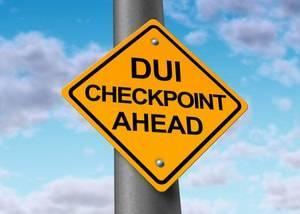Recent Blog Posts
Subsequent DUI/DWI Can Lead to Serious Consequences
 In the state of Texas, even a first DUI/DWI can result in heavy penalties, including the loss of a license, jail time, fines, and an annual fee to retain your license once it can be reinstated. What happens, though, when a first mistake turns into a second or third? What are the consequences for those who are caught driving intoxicated years later, or beyond a third time? The following outlines the laws in Texas for subsequent DWI convictions.
In the state of Texas, even a first DUI/DWI can result in heavy penalties, including the loss of a license, jail time, fines, and an annual fee to retain your license once it can be reinstated. What happens, though, when a first mistake turns into a second or third? What are the consequences for those who are caught driving intoxicated years later, or beyond a third time? The following outlines the laws in Texas for subsequent DWI convictions.
Second and Third DUI Convictions
Texas has an indefinite “lookback” period, meaning your DUIs and DWIs are never truly forgotten by the justice system. Every conviction counts against you, regardless of how much time has lapsed. So, even if your last conviction was 20 years ago, and you were recently arrested for an allegedly driving intoxicated, you are looking at charges for a second DWI.
If convicted, you could face up to a year in jail, a two-year suspension of your driver’s license, an annual fee to retain your license to retain your license once it can be reinstated, and a fine of up to $4,000. If your second conviction is within five years from your first, you must also have an interlock ignition device installed in your vehicle. This prevents you from operating your vehicle if you have been drinking.
MADD Celebrates 30 Years of "Tie One On For Safety" DUI Campaign
 The National Highway Traffic Safety Administration (NHTSA) correlates impaired driving or driving under the influence (DUI) with an even larger problem, alcohol misuse, and abuse. This definition is supported by cold hard financial data as vehicle accidents total over $37 billion annually with over 52 percent of fatalities related directly to driving under the influence.
The National Highway Traffic Safety Administration (NHTSA) correlates impaired driving or driving under the influence (DUI) with an even larger problem, alcohol misuse, and abuse. This definition is supported by cold hard financial data as vehicle accidents total over $37 billion annually with over 52 percent of fatalities related directly to driving under the influence.
With the advent of the holiday season through to New Year’s Eve, the results can be even more devastating and is often referred to as "DUI season." The unofficial start of DUI season is typically Thanksgiving Eve, sometimes referred to as "Black Wednesday" and is documented to be the busiest night of the year for DUI arrests.
As these startling statistics continue to raise concerns, Mothers Against Drunk Driving® (MADD), a non-profit organization dedicated to stopping impaired driving is proudly once again promoting the Tie One On For Safety® Campaign.
Information on Texas No-Refusal Weekends
 Occurring several weekends throughout the year, Texas police officers make a valiant effort to lessen the numbers of fatalities and other accidents resulting from DUI and DWI. The most well-known efforts around the state are "No-Refusal Weekends." These events are named aptly in that refusal for testing becomes more difficult, however, it may be very misleading to unassuming drivers unfamiliar with their rights during these situations. As a United States citizen, you have certain constitutional rights on which even Texas officers cannot infringe.
Occurring several weekends throughout the year, Texas police officers make a valiant effort to lessen the numbers of fatalities and other accidents resulting from DUI and DWI. The most well-known efforts around the state are "No-Refusal Weekends." These events are named aptly in that refusal for testing becomes more difficult, however, it may be very misleading to unassuming drivers unfamiliar with their rights during these situations. As a United States citizen, you have certain constitutional rights on which even Texas officers cannot infringe.
How No-Refusal Weekends Work
No-Refusal Weekends occur around major holidays or sporting events, such as Thanksgiving Day, New Years, and the Super Bowl. With plenty of audio and visual advertisement alerting drivers the weekend is near, the intent is to crack down on the amount of drivers operating vehicles while intoxicated. However, the name is confusing to many who incorrectly assume you have to succumb to any requested testing.
Denied Access to Travel Because of a DWI
 When you are charged and convicted of a DWI or DUI, there are certain limitations imposed by the state. One obvious alteration is the loss of unlimited driving privileges, in some cases. Did you also know that a DUI on your record can prevent you from traveling to other countries? For some, a travel ban puts a damper on their holiday travel dreams. For others, this can be a massive disruption to their work productivity.
When you are charged and convicted of a DWI or DUI, there are certain limitations imposed by the state. One obvious alteration is the loss of unlimited driving privileges, in some cases. Did you also know that a DUI on your record can prevent you from traveling to other countries? For some, a travel ban puts a damper on their holiday travel dreams. For others, this can be a massive disruption to their work productivity.
Access Denied
Throughout the United States, if you have been convicted of a DUI and have taken care of it legally, you typically can travel across borders to other states. Although the United States is becoming increasingly progressive through its laws, not all countries feel the same way. Therefore, even if the law locally is a misdemeanor or you can retain certain privileges due to your circumstances, constituents can deny access. In some of these countries, if you have had one DUI for either alcohol or drugs, you are unable to enter the country for ten years. Frequently traveled countries follow these current guidelines:
How a Texas DWI Can Result in Additional Child Endangerment Charges
 The Texas Department of Transportation (TxDot) reports that every 20 minutes someone is either injured or killed in a motor vehicle accident involving driving while intoxicated (DWI). As impairment begins with the first drink and depends heavily on gender, body weight, number of drinks consumed and the amount of food ingested, some people may become legally intoxicated quite quickly.
The Texas Department of Transportation (TxDot) reports that every 20 minutes someone is either injured or killed in a motor vehicle accident involving driving while intoxicated (DWI). As impairment begins with the first drink and depends heavily on gender, body weight, number of drinks consumed and the amount of food ingested, some people may become legally intoxicated quite quickly.
Under Texas law, someone is legally intoxicated if a person reaches a blood or breath alcohol concentration (BAC) of .08. The state also reserves the right to prosecute for DWI for anyone who is visually impaired while driving under the influence of alcohol or illegal substances.
The state imposes fines, loss of driver's license, and jail time based on the number of offenses a driver has acquired. But, facing a DWI with a minor child as a passenger can be an even more sobering experience. Those arrested for DWI with a minor passenger can be facing the following:
MADD Shares Its Vision By Enlisting the Support of the 2016 NFL Rookie Class
 Mothers Against Drunk Driving®, or better known as MADD, is currently the largest nonprofit in the United States dedicated to protecting families from the dangers of those choosing to drive while under the influence (DUI or DWI) of alcohol or an illegal substance. Founded by Candy Lightner on May 3, 1980, following the tragic death of her daughter at the hands of a drunk driver, MADD has solidified its position as one of the most influential nonprofits spreading the word of the dangers of impaired driving.
Mothers Against Drunk Driving®, or better known as MADD, is currently the largest nonprofit in the United States dedicated to protecting families from the dangers of those choosing to drive while under the influence (DUI or DWI) of alcohol or an illegal substance. Founded by Candy Lightner on May 3, 1980, following the tragic death of her daughter at the hands of a drunk driver, MADD has solidified its position as one of the most influential nonprofits spreading the word of the dangers of impaired driving.
Drunk Driving Statistics
MADD reports that every 53 minutes someone is killed in an alcohol or substance abuse related accident, and every two minutes someone is injured under the same circumstances. Through outreach and education, MADD has made itself a formidable presence in American culture and with the beginning of football season the organization is expanding its affiliation with the National Football League (NFL) by enlisting the 2016 crop of NFL rookie players.
A Historical Challenge During Challenging Times: How Well Do You Know the Bill of Rights?
 As the summer and political heat reaches its peak, perhaps evoking a history challenge may be a cooler diversion. If asked, what are the two most popular amendments of the United States Constitutional Bill of Rights, a gambling man (or woman) may answer, the First and Second Amendments. Of course, there are a number of others that are just as important to protecting the rights of Americans, especially those who have been accused of a crime.
As the summer and political heat reaches its peak, perhaps evoking a history challenge may be a cooler diversion. If asked, what are the two most popular amendments of the United States Constitutional Bill of Rights, a gambling man (or woman) may answer, the First and Second Amendments. Of course, there are a number of others that are just as important to protecting the rights of Americans, especially those who have been accused of a crime.
Basic Civil Rights
As our forefathers provided futuristic insight as to the importance of each amendment, the First Amendment protects our fundamental rights of conscience allowing for the right of expression without public or governmental interference. While not unlimited, these rights represent the bedrock of American liberty.
Next on the popularity list and perhaps one of the most controversial amendments is the right “to bullets as well as ballots”. This amendment protects individual rights to bear arms to secure the path and pursuit of life, liberty, and happiness.
Montgomery County Texas Judge Gets Tough on Habitual DWI Offender
 The Centers for Disease Control (CDC) reports that every 53 minutes, someone is involved in a fatal car accident due to the actions or reactions of a driver operating a motor vehicle while under the influence. This startling number equates to the death of 28 people per day with an annual cost of over $44 billion. As the CDC remains hopeful that the implication of effective measures and awareness campaigns may help prevent injuries and fatalities from alcohol or drug impaired driving, what can be done to curtail the habitual offender?
The Centers for Disease Control (CDC) reports that every 53 minutes, someone is involved in a fatal car accident due to the actions or reactions of a driver operating a motor vehicle while under the influence. This startling number equates to the death of 28 people per day with an annual cost of over $44 billion. As the CDC remains hopeful that the implication of effective measures and awareness campaigns may help prevent injuries and fatalities from alcohol or drug impaired driving, what can be done to curtail the habitual offender?
Montgomery County Judge Kathleen Hamilton may have just set a fundamental precedent. For a Houston man arrested for the ninth time for driving under the influence and responsible for a non-fatal accident, Judge Hamilton handed down a life sentence. This DWI conviction will probably evoke an appeal, but is it time for all states to become more legally vigilant on habitual offenders?
Currently Texas enforces the following punitive measures for adult offenders:
Texas Ranks Among States With Highest Traffic Violation Revenue
 Texas, with its vast landscape measuring 268,581 square miles, has often been associated with maxim that “everything is bigger in Texas.” The Lone Star State, however, is also known for its commitment to law enforcement and has been ranked as one of the top five states for traffic violations, tickets issued, and revenue collected.
Texas, with its vast landscape measuring 268,581 square miles, has often been associated with maxim that “everything is bigger in Texas.” The Lone Star State, however, is also known for its commitment to law enforcement and has been ranked as one of the top five states for traffic violations, tickets issued, and revenue collected.
With over 13,498,071 registered drivers, it is estimated that the Texas Highway Patrol collects $200,000 per year, per officer due to ticketing for both major and minor traffic violations. The most common type of minor and major traffic violations and ticket prices include:
Minor Traffic Violation Fines
- Failure to observe railroad crossing signs: $50 to $200;
- Failure to stop for a school bus: $200 to $1,000;
- Failure to wear a seatbelt: $50 to $200;
- Parking in handicap zone: up to $500; and
- Speeding: $150.
Attorney General Offers Suggestions for Decreasing Risk of Identity Theft
 The average American now spends more than 490 minutes or eight hours per day on the internet. It is projected that by 2017, personal internet usage will climb upwards to 506 minutes, increasing the current usage rate. As usage expands so does the risk for identity theft.
The average American now spends more than 490 minutes or eight hours per day on the internet. It is projected that by 2017, personal internet usage will climb upwards to 506 minutes, increasing the current usage rate. As usage expands so does the risk for identity theft.
At the onset of popularity of the internet during the early to mid 2000s, Americans, as well as those having global access to the world wide web, have been progressively utilizing the internet to conduct countless business and leisure activities, including:
- Communicating via email;
- Networking via Social Media;
- Navigating general and personal interest searches;
- Gathering national and international news reports;
- Streaming music and videos;
- Gaming;
- Shopping;
- Personal banking; and
- Conducting employment searches.





